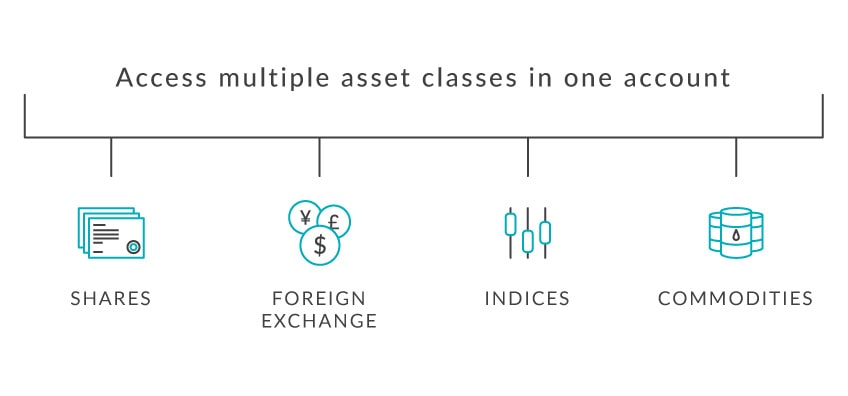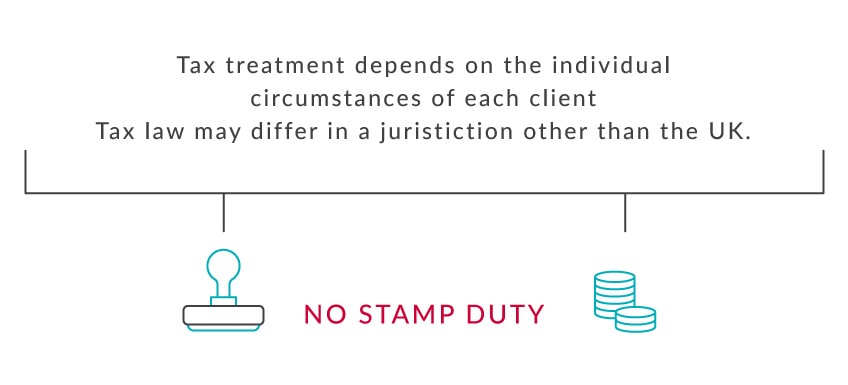Contracts for Difference (CFDs) are derivatives that enable traders to speculate on financial markets without taking ownership of the underlying asset.
The contract referred to is an agreement between the buyer and the seller to exchange the difference between the opening and closing price of the asset being traded.
What are the advantages of trading CFDs?
As derivative instruments, Contracts for Difference provide investors with a range of advantages when compared with other, more traditional forms of investment. CFDs offer dealers the advantages as well as the risks of possessing a security without really owning it.
Trade Rising and Falling Markets
With CFDs, traders are able to speculate on both rising and falling markets. This means that there are more trading opportunities available, as profit can be made from buying or selling Contracts for Difference on a wide range of financial instruments. As an example, when an investor buys company shares or stocks, profit can only be earned if they rise in price. In comparison, with CFDs, an investor can also profit by selling shares if they believe a company’s stock value will drop.
Investors trading CFDs can go long or take a short position, as well as buy or sell their positions. In the CFD market, there are no “short-selling” regulations which mean that a product can be shorted whenever a trader wishes to do so. There are no “shorting costs” because there is no actual physical possession of a given asset. There are also very few, or in some cases, no fees for trading CFDs, making them attractive to investors. Brokers earn a commission from the spread which implies that the trader pays the asking price when buying a product and gets the bid price when they short. Brokers make a commission or a spread on every bidding and asking price which they execute.
Invest in a Wide Range of Markets
By registering with an online CFD broker like LCG (LCG), traders are able to invest in a wide range of financial markets through an online trading platform. From a single account, traders have access to Contracts for Difference on forex, shares, indices, spot metals, commodities, bonds and ETFs, providing a wide range of investment opportunities.

Trading on Margin
Through the use of financial leverage, investors are able to trade the markets with a smaller initial deposit. Essentially, leverage acts as a loan that a trader takes from their broker, enabling them to control larger CFD positions on the market by investing a smaller amount of capital, which is reserved as margin. This makes CFD trading more accessible and cost-effective than other investment methods.
An advantage of CFDs is the fact that they are traded “on margin”, which means that the broker lets investors borrow money to add leverage. In other words, to increase the monetary size of the position to increase potential profits. Brokers will require traders to have certain amounts of assets before they allow these types of operations.
Trading with CFDs on margin normally provides the trader with greater leverage than conventional trading. Let’s say you can benefit from a margin of 10. This means that for a $10’000 position, you will only need $1’000 as capital.
No Stamp Duty
Another reason that CFD trading can be more cost-effective than other forms of investing is that, when trading Contracts for Difference, there is no stamp duty to pay. As CFDs are derivative instruments, an investor is not taking ownership of the underlying asset, as such, stamp duty does not apply.

CFD Regulations
Other advantages of CFDs include fewer regulations when compared to other standard exchanges. In other words, CFDs can have reduced investment conditions and therefore require less cash in a brokerage account. This means that traders do not need as much money to open an account with a broker and since CFDs oftentimes reflect corporate or commercial activities someone owning CFDs is entitled to collect dividends, which in turn increases a trader’s return. Most of the time CFD brokers present traders with products in all the global markets.
What are the disadvantages of CFD trading?
Although there are numerous benefits to CFD trading, an investor must also ensure they fully understand the risks involved when trading financial derivatives.
Leverage Can be a Double-Edged Sword
Trading on margin enables investors to open a CFD position on the market with a smaller initial deposit, however, it also carries a certain level of risk. If a trader enters the market undercapitalised and overleveraged, even the smallest price movements can wipe out their entire investment. As such, it is critical that an investor fully understands how CFD trading works and has a sound risk management strategy in place before opening a position.
Because CFDs are traded using leverage, which may seem beneficial, traders are at risk of losing all their funds. A margin call is when a trader is required to either close all their positions or add more funds to their account, in the case that they owe borrowed money to the broker. Being able to win more using the money you do not possess, also means risking losing the money you don’t have. If the equity falls below the price you would be able to reimburse, positions will be close automatically.
Costs Can Grow Over the Long-Term
Although CFD trading can be a cost-effective method of investing in the financial markets, if positions are left open for extended periods and not managed effectively, costs can accrue over time. Investors looking to open long-term trades should be aware of additional costs, such as overnight swaps.
Volatility in CFD trading
When there is severe volatility in the markets and the product in question is affected, the spread on the bid and ask price can be substantial. Large spreads will affect the prices paid by the trader when entering and exiting positions and this will negatively affect trades and increase losses. Because the CFD industry is not stringently regulated, CFDs are not offered in the United States.
Related CFD trading questions
CFDs are a type of derivative
CFDs permit brokers to barter with the price volatility of securities and derivatives. Derivatives are monetary investments that are stemmed from an underlying asset. In Essence, CFDs are used by investors and financiers to bet if the price of the fundamental asset or security will climb or drop.
Traders can anticipate the price of CFDs moving up or down. Brokers who believe in an upward movement of a CFD in price will buy that CFD. Traders who predict the opposite movement will sell a position.
If the buyer of a CFD realizes that the asset's price is escalating, they will often offer their asset for sale. The difference between the purchasing price and the selling price is profit. The net difference representative of the benefit or loss from the operations is resolved through the investor's brokerage account.
CFDs allow traders or brokers to trade currencies, indices, treasuries, shares, bonds, and commodities on the financial markets. All of this without ever owning the underlying securities.
CFDs vs Futures
CFDs may be applied in the trade of numerous assets and indemnities, as well as exchange-traded funds better known as ETFs. Brokers will utilize these products to speculate on the price changes in commodity futures contracts, for example, corn, crude oil, or even soybeans. Futures contracts are standard “deals” or agreements on contracts with obligations to buy or sell a specific asset at a predetermined price with a future termination date.
Even though CFDs permit investors to exchange the price actions of futures, they are not futures contracts. CFDs do not have termination dates comprising predetermined prices but rather trade like any other securities with buying and selling prices.
CFDs are traded “over the counter” (OTC) via a structure of traders which establish the market’s supply and demand for CFDs and render prices appropriately. CFDs are not traded on the main exchanges like the New York Stock Exchange. A CFD is a contract between a client/principal and a trader, bartering the difference in the initial price of a trade and the value when the trade is reversed.
Read our next article: How to trade cryptocurrencies CFDS ?





